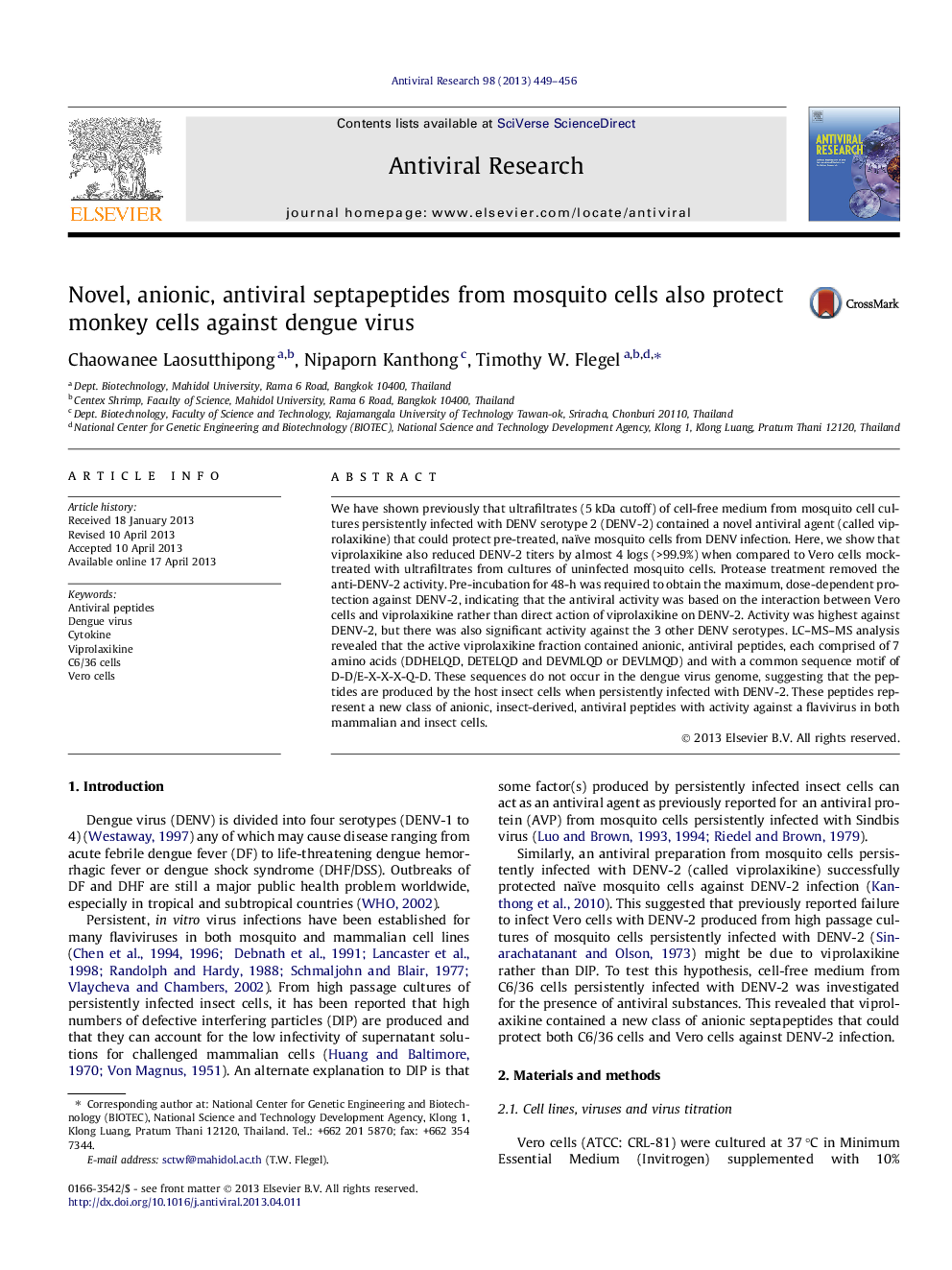| Article ID | Journal | Published Year | Pages | File Type |
|---|---|---|---|---|
| 5822387 | Antiviral Research | 2013 | 8 Pages |
â¢Persistent dengue virus infections in mosquito cells produce antiviral septapeptides.â¢The peptides are strongly anionic.â¢The peptides protect both mosquito and Vero cells against dengue virus infection.â¢The peptide consensus sequence is D-D/E-X-X-X-Q-D.
We have shown previously that ultrafiltrates (5Â kDa cutoff) of cell-free medium from mosquito cell cultures persistently infected with DENV serotype 2 (DENV-2) contained a novel antiviral agent (called viprolaxikine) that could protect pre-treated, naïve mosquito cells from DENV infection. Here, we show that viprolaxikine also reduced DENV-2 titers by almost 4 logs (>99.9%) when compared to Vero cells mock-treated with ultrafiltrates from cultures of uninfected mosquito cells. Protease treatment removed the anti-DENV-2 activity. Pre-incubation for 48-h was required to obtain the maximum, dose-dependent protection against DENV-2, indicating that the antiviral activity was based on the interaction between Vero cells and viprolaxikine rather than direct action of viprolaxikine on DENV-2. Activity was highest against DENV-2, but there was also significant activity against the 3 other DENV serotypes. LC-MS-MS analysis revealed that the active viprolaxikine fraction contained anionic, antiviral peptides, each comprised of 7 amino acids (DDHELQD, DETELQD and DEVMLQD or DEVLMQD) and with a common sequence motif of D-D/E-X-X-X-Q-D. These sequences do not occur in the dengue virus genome, suggesting that the peptides are produced by the host insect cells when persistently infected with DENV-2. These peptides represent a new class of anionic, insect-derived, antiviral peptides with activity against a flavivirus in both mammalian and insect cells.
